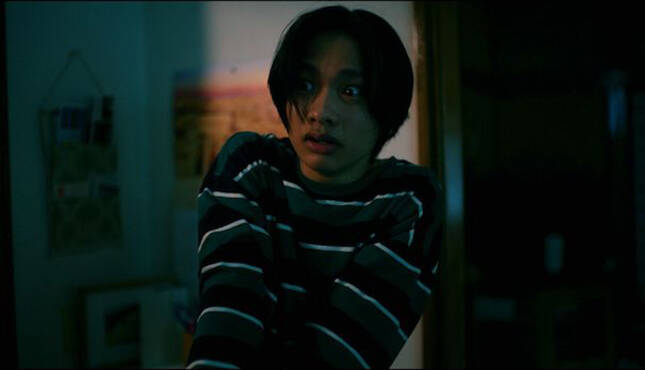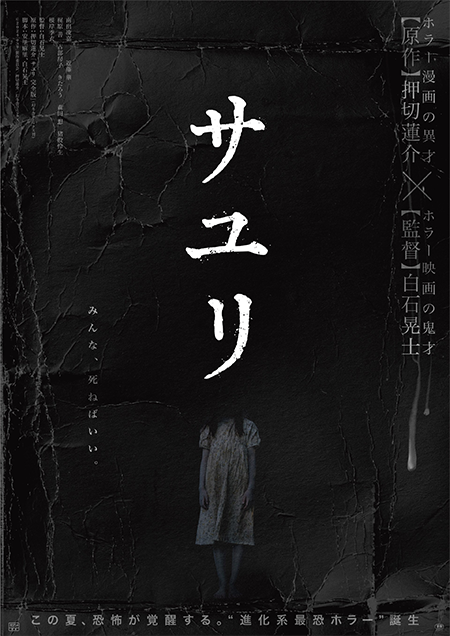Movies & TV / Reviews
Fantasia 2024: House of Sayuri Review
 Image Credit: Fantasia IFF
Image Credit: Fantasia IFF
Fantasia 2024: House of Sayuri Review
Directed by: Koji Shiraishi
Written by: Mari Asato, Rensuke Oshikiri & Koji Shiraishi
Starring:
Ryoka Minamide – Norio Kamiki
Toshie Negishi – Harue Kamiki
Hana Kondo – Nao Sumida
Kokoro Morita – Keiko Kamiki
Ray Inomata – Shun Kamiki
Fusako Urabe – Masako Kamiki
Zen Kajihara – Akio Kamiki
Kitaro – Shozo Kamiki
Haruka Kubo Sayuri Kujyo

Running Time: 108 minutes
Not Rated
It is notoriously hard to effectively mix horror and comedy. The two genres are too structurally similar to mix easily and finding that right balance of between the two is a secret sauce that countless of filmmakers have tried and failed at.
But if you can find that balance you can get away with a lot, as Koji Shiraishi proves with House of Sayuri which had its North American premiere at Fantasia International Film Festival. Shiraishi takes his expertise in J-horror and gives Japan’s haunted house tropes a wild spin with a film that doesn’t hold back on either the body count or the humor.
After a prologue that teases an act of violence in a countryside home, House of Sayuri (adapted from Rensuke Oshikiri’s manga Sayuri) sets down a very well-worn premise as the Kamiki family moves into the conspicuously affordable house some time later. The extended family is excited to be able to live in a spacious and comfortable place. But before long, strange things start to occur around the house and daughter Keiko (Kokoro Morita) starts displaying signs of unusual behavior that suggest they may be dealing with a supernatural presence.
All of this is very standard stuff for a horror film, and the first half of House of Sayuri traffics fully in the plot elements familiar to fans of late 1990s and early 2000s J-horror like Ju-On and Ringu. But Shiraishi, an expert in the genre himself with Noroi: The Cuse, knows exactly what he’s doing and he sets up the familiar story just so he can knock it on its head once the body count has piled up.
That knock comes in the form of Harue (Toshie Negishi), the dementia-afflicted grandmother of the clan. It’s clear early on that Harue has an inkling something isn’t right, but her condition results in her being dismissed. When she finally rises up to join forces with eldest son Norio (Ryoka Minamide) against the malevolent spirit, the film lets its humor out to play and it becomes a much more entertaining ride.
The film’s success rests largely on Negishi’s shoulders, and she’s up to the task as the irascible grandmother sensei that teaches Norio how to battle the dark spirit of Sayuri. The tonal shifts can be a bit much, and they become a problem when the ghost’s extremely dark origin story is revealed, but Negishi and Minamide make a genuinely charming duo in their search to get rid of the ghost and get some revenge on her at the same time.
In addition to his dynamic with Nigishi, Minamide establishes some solid chemistry with Hana Kondo, who plays a high school girl with a gift for sensing the supernatural. Narratively, it’s one element too many for the film but Kondo’s good-natured performance is a necessary offset to the darker elements as well as a counterbalance to Grandma’s tough love approach.
It all careens its way toward a final climactic act where things go off the rails a bit. The revelations are an ill fit for the film’s tones up to this point and the inclusion of Sayuri’s family slows the momentum down. The final showdown gets things back on track, though it is slightly undercut by an effects sequence more ambitious than Shiraishi’s budget allows.
But even with the problematic last act, there’s a lot to enjoy here. The solid scares in the opening half switch out for the dark humor of the back, and Shiraishi wraps things up satisfactorily. Much like his Sadako vs. Kayako, this won’t work for everyone. But even with its clumsier moments, it’s a well-executed subversion of the classic J-horror onryo story on the whole.
The Fantasia International Film Festival takes place in Montreal from July 18th through August 4th.








